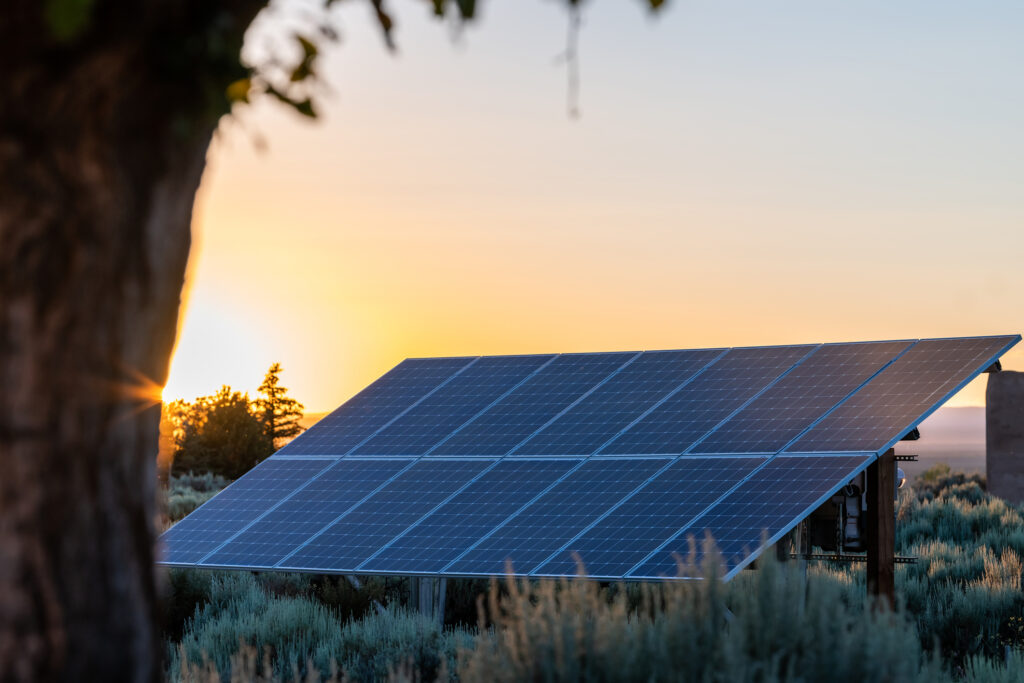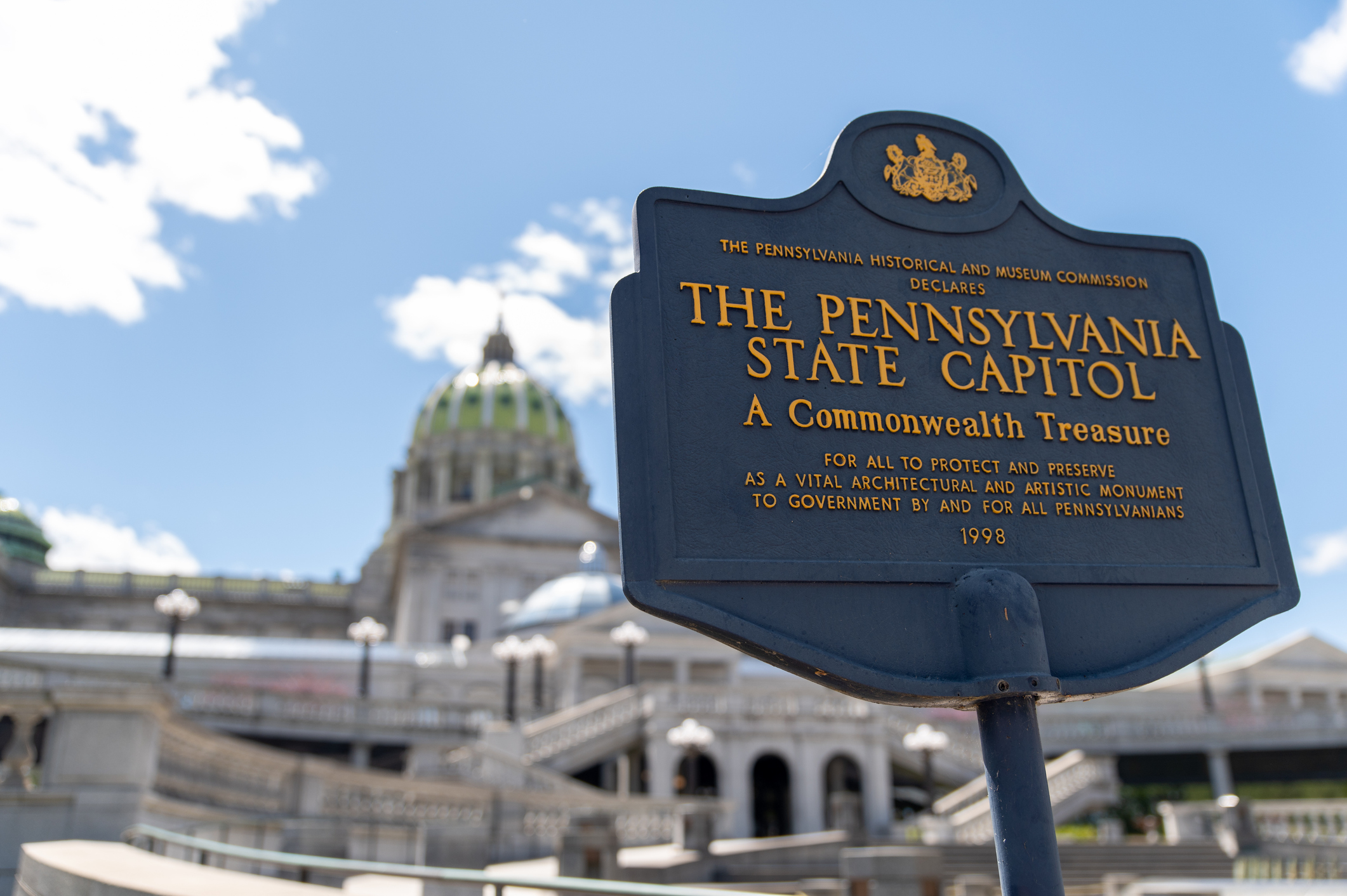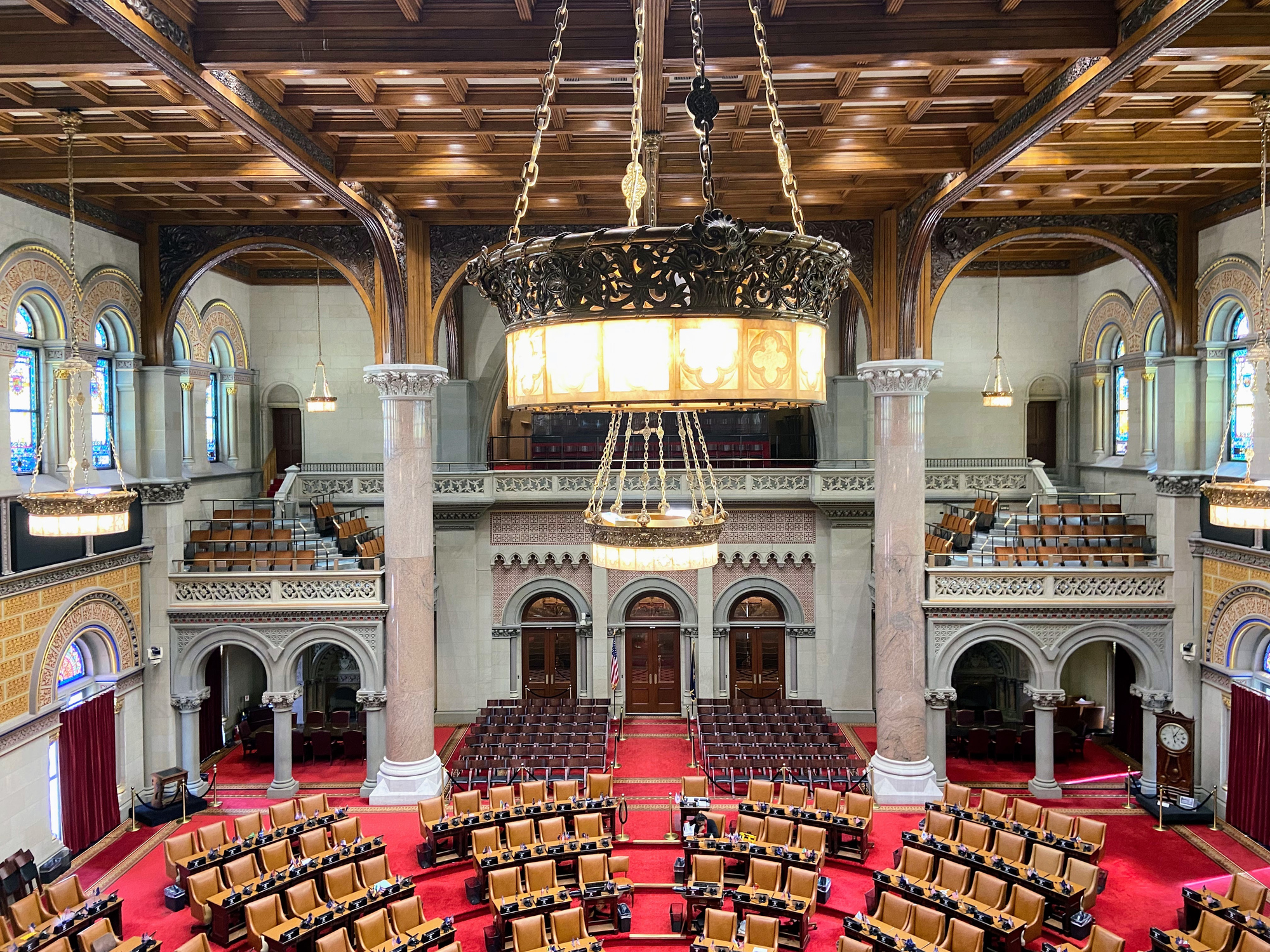
Solar energy deployment has continued to increase, but the spread of new projects is not comprehensive. The National Renewable Energy estimates that 42% of households cannot access behind-the-meter solar. To address the problem, many states have enacted or introduced “community solar” policies. Community solar is defined as any project or purchasing program within a geographic area in which the benefits of a solar project flow to multiple customers, such as individuals, businesses, nonprofits, and other groups. It allows individuals to receive solar incentives without installing solar panels themselves.
This article explores community solar developments that have made headway in state legislatures in 2024. Join us as we highlight Alaska, Colorado, Pennsylvania, and Rhode Island, which recently enacted or introduced legislation to expand solar access by promoting community solar projects.
Alaska Creates Community Solar Framework
Governor Mike Dunleavy signed SB-152 on August 13, laying out standards for individuals and utility companies in residential and community solar programs. The bill requires electric utility companies to make community solar programs available and implement a common energy tariff for all subscribers. For utility company operations, the bill allows full ownership of the community solar project and the freedom to apply for modifying or waiving requirements.
Alaskan officials emphasized the need to expand renewable energy. Arthur Miller, CEO of Chugach Electric, believes the law “allows businesses and households to benefit from renewable power if they can’t install solar at their location.”
Colorado Addresses Energy Distribution Through Community Solar
In May 2024, Colorado Governor Jared Polis signed SB24-207 concerning energy access. By 2026, utility companies with over 500,000 customers must make at least 50 megawatts of community solar capacity available. For companies with 500,000 or fewer customers, the requirement is 3.5 megawatts. Utility companies must reserve 51% of their capacity for income-qualified subscribers to community solar projects and provide subscription discounts for new facility development.
SB24-207 received bipartisan support in the Assembly and Senate.
Pennsylvania Introduces Community Solar Legislation
The Community Solar Act, introduced in the 2024 legislative session, provides a framework for community solar facilities, adds requirements for utility commissions, and develops consumer protection for community solar subscribers. House Bill 1842 allows for the creation of community solar programs. However, it does not quantify the required megawatts set aside for the program. Additionally, the bill separates community solar organizations from electric distribution companies; services from each entity may not be billed by the other, ensuring community energy subscribers are not overcharged for energy fees. However, electricity distribution companies can purchase unsubscribed energy from community solar facilities.
The State House advanced the bill in late March, but still resides in the Senate Consumer Protection and Professional Licensure Committee.
Rhode Island Expands Consumer Protection for Solar Protects
Governor Dan McKee signed H7603, expanding off previous legislation codifying frameworks for community solar projects. The new legislation, signed on August 14, allows the Department of Business Regulation (DBR) to investigate complaints against solar companies. DBR may increase penalties based on investigations. The bill intends to act as a “Homeowner’s Bill of Rights” regarding electric utilities and community solar programs.
Solar retailers must register with the Department of Business Regulation annually, alongside requirements to report sales for residential and community solar projects. The increase in disclosure is motivated by several investigations into solar companies, ensuring consumers can understand the projects they sign up for.
Latest News
Photo credit: iStock.com/Niiaz Sabirov In 2025, several U.S. states have introduced legislation to prohibit geoengineering, defined as intentional large-scale interventions in Earth’s atmosphere or climate systems, such as cloud seeding or solar radiation modification. These [...]
Photo credit: iStock.com/Hamburg Studios As Pennsylvania continues to navigate an evolving energy landscape, state leaders are proposing new approaches to ensure reliability, affordability, and sustainability. Governor Josh Shapiro recently announced his “Lightning Plan”, a six-part [...]
Photo credit: iStock.com/Ray Tan As the impacts of climate change intensify, several U.S. states are taking legislative steps to address the mounting costs of adaptation and resilience. New York, New Jersey, and Vermont have recently [...]
In this episode of The Back in Session Podcast, hosts Ryan Stevens and Ryan DeMara are joined by Brendan Williams from PBF Energy. They delve into the state of energy policy, the refining sector, and [...]






Stay In Touch